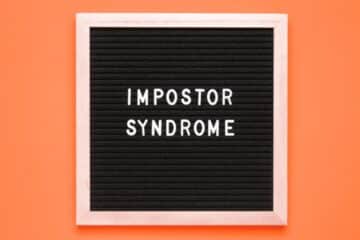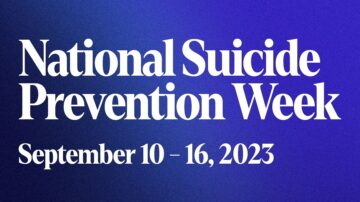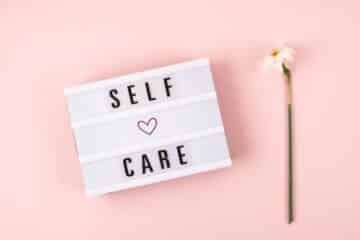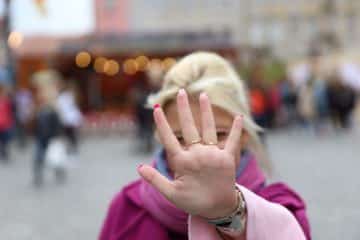
Mental Health at Work – Mental Illness Awareness Week
Each year, the first week of October marks a significant occasion: Mental Illness Awareness Week (MIAW). From October 6 – 12, 2024, organizations, communities, and

Broaden your understanding of mental health with articles that cover a wide range of topics, aiming to educate and reduce stigma.

Each year, the first week of October marks a significant occasion: Mental Illness Awareness Week (MIAW). From October 6 – 12, 2024, organizations, communities, and

Burnout is an increasingly common experience, particularly in our fast-paced, demanding world. It goes beyond the typical stress we all feel at times, manifesting as

Taking Care of Your Mental Health While Working at Costco Mental health is an essential part of overall well-being, but it can be challenging to

Grieving the loss of a loved one is always difficult, but when the cause of death is an overdose, the grief can become particularly complex.

Depression is a multifaceted mental health condition that affects millions of people worldwide. It manifests in various forms, each with its own unique set of

Silent panic attacks, though less well-known than their more conspicuous counterparts, are a form of panic attack that occurs without the typical physical symptoms associated

Anxiety is a prevalent mental health concern, particularly among young adults who are navigating a complex period of life. With increasing responsibilities, academic pressures, and

thoughts resonate with you, you might be experiencing what is known as imposter syndrome.
Imposter syndrome isn’t rare; it’s a widespread psychological phenomenon where

Mental health is a paramount concern, affecting millions of individuals and their families. Access to effective mental health care can significantly improve quality of life,

Beyond the individual struggle with gambling itself lies a complex interplay of co-occurring psychiatric disorders, framing a scenario often referred to as Dual Diagnosis. This

The phenomenon of distorted self-image emerges as a complex interplay of psychological, social, and cultural dynamics. This condition, where individuals perceive themselves in a manner

Trauma bonding represents a complex emotional state where individuals develop deep attachments under conditions of abuse, manipulation, and control. This psychological phenomenon transcends the boundaries

In response to trauma, the human body and brain are wired to activate a series of protective mechanisms—what we commonly refer to as trauma responses.

Paranoid Personality Disorder (PPD) is a mental health condition marked by persistent and pervasive mistrust and suspicion of others, even in the absence of valid

Recent years have witnessed a dramatic transformation in public attitudes toward marijuana. This has led to a significant increase in cannabis use among young populations.

Antidepressants are a cornerstone in the treatment of depression, offering relief for many who struggle with this challenging mental health condition. However, the journey with

Mental health is integral to our overall well-being, yet it’s often shrouded in misunderstanding and stigma. This article aims to shed light on the path

Jung’s model of the psyche includes the shadow, the part of ourselves that we, consciously or unconsciously, reject or deem undesirable. Shadow work involves acknowledging

Schizotypal Personality Disorder (STPD) stands as a profound testament to the complexities and diversities of the human psyche. As a mental health condition, it encapsulates

Depersonalization-derealization disorder (DPDR) is a mental health condition characterized by feelings of detachment from one’s own body, thoughts, and surroundings. This disorder can be broken

September is a crucial month for the mental health community. Not only is it recognized as National Suicide Prevention Month, but it also features National

Maintaining a healthy balance between self-care and life’s obligations can be challenging. It is essential to find ways to balance self-care with obligations such as

Human relationships can often be complicated and challenging. When there is a personality disorder at play, the challenges can become even more difficult to navigate.

Chronic pain is a common condition that affects millions of people worldwide. It is defined as pain that persists for more than three months despite

Becoming a mother is an experience like no other, but it can also be filled with a range of emotions, from elation to anxiety and

Illness Anxiety Disorder: Causes, Symptoms, Diagnosis, and Treatment With the COVID-19 pandemic, concerns about illness and health have been at the forefront of most people’s

As those who’ve been so depressed they couldn’t get out of bed already know, depression absolutely impacts the body. While not commonly thought of as

Most are familiar with the concept of attachments; we form strong bonds with our loved ones, family, friends, and even animals. But did you know

Avoidant Personality Disorder, or AVPD, is characterized by extreme sensitivity to criticism and shyness. This disorder appears in about 2% of the general US population,

Anxiety disorders are characterized by excessive fear that is usually irrational. Typically, people suffering from anxiety disorder mainly cannot contain the excess fear or feelings





















This website uses cookies so that we can provide you with the best user experience possible. Cookie information is stored in your browser and performs functions such as recognizing you when you return to our website and helping our team to understand which sections of the website you find most interesting and useful.
Strictly Necessary Cookie should be enabled at all times so that we can save your preferences for cookie settings.
If you disable this cookie, we will not be able to save your preferences. This means that every time you visit this website you will need to enable or disable cookies again.
More information about our Cookie Policy